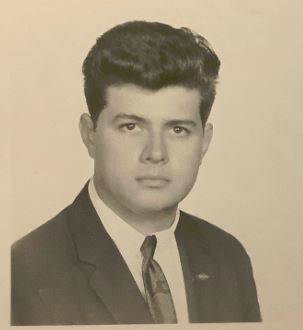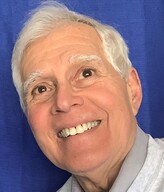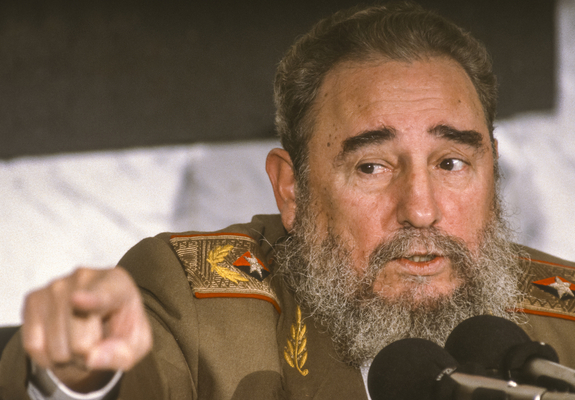On Christmas Eve in 1958, Rosendo (Marty) Martinez boarded a plane from Havana to Miami with the goal of studying at Embry Riddle Aeronautics Institute. His native Cuba was in a state of economic chaos and civil unrest as guerilla warfare raged between Fidel Castro’s revolutionary forces and the Batista dictatorship’s democratic socialist military.
Today, Marty is a man on a mission with two specific goals: informing the American people of what happened to Cuba, and working to ensure America doesn’t become a communist country. “If we lose America to communism, we lose everything,” he says. “The tactics Fidel used in Cuba are being used in America today. It’s important to recognize what’s happening.”
Stability & Turmoil
In the mid-1950s, Marty Martinez lived with his mother and father in a stately brick house in an upscale neighborhood of Camaguey, Cuba’s second largest city. “My father was a marketing representative for distributors,” says Marty. “He sold goods to food warehouses throughout the Camaguey Province. The company imported liquors and packaged items, such as pickles, candles and olives from Spain.”
Marty’s father also held a prestigious position as one of six members on the Board of Directors of Camaguey’s largest hospital - La Colonia Española. “I had a good childhood,” states Marty. “We were upper middle class. I went to the best private school in the city. We vacationed in the United States three times. We visited all the major cities east of the Mississippi River, including Toronto and Montreal. Back then, few Cubans traveled outside of Cuba. We had a close-knit family with my aunts, uncles and cousins living nearby. We lived a very good life; my mother even had a maid. My father was able to send me to study at Embry Riddle, and pay for my career until he had to come here as a refugee in the summer of 1961. Then, I had to get a full-time job to finish paying for my education.”
And yet, Cuba in the mid-1950s was also a country in turmoil. In addition to its thriving tourist trade and stable upper middle class, Cuba had a weakening economy – indebted to the United States. Labor unrest was growing. Political corruption was rampant, and societal decay was prevalent in the form of gambling, prostitution and organized crime. Additionally, the Cuban people lived in a state of political upheaval with ongoing guerilla warfare between Batista’s military and Fidel Castro’s ragtag insurgents encamped in the Sierra Maestra Mountains of southeastern Cuba.
Before seizing power on Jan. 1, 1959, Fidel Castro and his brother Raúl challenged the Batista dictatorship for nearly a decade. As a student and Havana University law graduate, Fidel Castro incited rebellion by distributing to students Marxist materials criticizing government corruption. Not only did he participate in revolutionary activities in Cuba and throughout Latin America, Castro also served as a prominent member of the reformist Cuban People’s Party and organized forces to overthrow the Cuban government.
In 1957, Cuba experienced what historians consider its defining revolutionary moment. Students irate over government corruption stormed the National Palace in Havana. Afterward, the country witnessed periods of violence and lawlessness – similar to those seen over the past few years in the United States. Batista’s troops would threaten ordinary citizens. Gunfire would erupt in the streets. Explosions could be heard at night, and dead bodies would be found dumped on city streets and sidewalks.
The Erosion of Freedoms by Government Fiat
Fulgencio Batista, held two rounds of office in Cuba’s government prior to his removal in January 1959 – first as president (1933-1944) and again as a brutal dictator (1952-1959). Surprisingly, it was Batista – not Castro – who began restricting long-held Cuban freedoms, including the freedom of assembly and freedom of expression. And it was Batista who helped consolidate tyranny in Cuba by ushering in gun control. Batista established Cuba’s first gun registry, which Castro later used to disarm the Cuban people.
Using Mass Media to Generate Chaos & Fear
Fidel Castro was a charismatic and cunning figure who used the power of mass communication to incite revolution. Marty recalls with clarity Castro’s radio broadcasts from Cuba’s mountaintops, and his ability to avoid capture by moving every day to different areas of the island. The result – Castro’s ‘propaganda machine’ touched Cubans by the thousands.
“What most people don’t know is that the Cuban revolution didn’t start by fighting in the streets or attacking the government forts or the police stations,” Marty says. “The revolution began by creating chaos and fear.”
“In his radio broadcasts, Castro asked people to place bombs in the city to generate fear,” claims Marty. “Virtually everyone was pro-Castro. And when people heard bombs exploding at night they were happy because they knew the revolution was continuing. Castro asked people to throw bent, U-shaped nails on the highways so the points would pierce and cause flat tires. He asked people to throw chains over power lines to cause blackouts. He told people to cut the telephone lines between towns to interrupt communication so that people throughout the island wouldn’t know what was happening. The important thing he emphasized was to cause chaos – just like ANTIFA has done in this country.”
“And Batista, he was an evil man,” says Marty. “But Fidel made him look even worse than he was; turning the people totally against him. Castro would broadcast that Batista’s troops were killing students who opposed the regime, and people were never sure if this was true. But many thought it must be happening in other towns – even if they didn’t see evidence of it. Today, I look back and see that the same thing is happening here – in the news media and with Twitter and Facebook censoring people’s conversations and online posts.”
Through the Guise of Deception – False Hopes & Gun Control
Castro also used the power of television to convince the Cuban people that revolution would bring a better life. He promised virtually every sector of Cuban society an enhanced standard of living – work for the unemployed, land for rural workers, better working conditions for women and for Cuba’s working urban and agricultural poor. He promised workers increased wages and renters reduced rents. “The Cuban people looked to Castro as their hope for a return to democracy, social justice and economic security,” says Marty. “They did not see the warning signs of a communist takeover. Same as in Cuba, it is happening here.”
Castro also used the power of television to convince the Cuban people to relinquish their guns. “When Castro left the mountains and arrived in Havana, one of the first things he did was ask the Cuban people to donate their arms to fight the revolution,” says Marty. “People trusted Castro. They even bragged about how they were helping the revolution by donating their guns. And they turned them over by the thousands.”
Castro would use Batista’s gun registry to finish disarming the country – a key element to achieving total control. And soon thereafter, he would declare Cuba a communist country, knowing that without guns Cuba’s citizens could not fight back.
“That’s why the socialists in this country want your guns to be registered,” Marty maintains. “Castro even asked the people to become informers to protect the revolution. So knowing this, I found it alarming that some cities in the United States were urging people to be informants on others who refuse the vaccine shots.”
Nationalization of Business & Industry
In early January, 1959 following the overthrow of Batista’s dictatorship, Castro was named prime minister of Cuba’s new provisional government. “In the beginning, everyone was very happy,” recalls Marty. “I even went back to Cuba the summers of 1959 and 1960 to visit my family.”
At the time however, Marty did not know of Castro’s many atrocities. It’s estimated his forces arrested, imprisoned, tortured and executed more than 600 people linked to the Batista government within the first five months of rule.
Early on, Castro made sweeping changes in his quest to establish the first communist dictatorship in the Western Hemisphere. He nationalized Cuba’s private commerce and industry, including the housing, health care, manufacturing and education systems. He expropriated American and other foreign-held businesses, and nationalized agricultural lands. What Castro created was a one-party government that suppressed dissent and exercised dictatorial control over virtually every aspect of Cuba’s political, economic and social institutions. The result was a demoralized people and a country in economic collapse.
It’s Happening Here
Marty Martinez likens the U.S. turmoil and uncertainty of the past two years to events that preceded the communist takeover of Cuba. He cites political corruption at the highest government levels, civil unrest, violence and skyrocketing crime, a compromised ‘state-run’ media that suppresses and manipulates information, the blatant disregard of constitutional civil rights, class division and now the suppression of free speech. Marty sees this as a weakening America.
“Castro was deceitful,” Marty says. “He got Cubans to ‘donate’ their guns, knowing they’d be defenseless. The U.S. government is deceitful. They’ve used the politics of fear – ‘COVID fear’ to control people. Lock downs forced small businesses to go bankrupt. This was intentional – just as the energy policies imposed today are designed to hurt the people. And President Biden hands out money as if it’s free. And People get used to it. They rely on it. But nothing is free. Subsidies make you indebted to the federal government. It’s time people wake up and realize that what’s happening here is what happened in Cuba.”
Marty Martinez today is a man on a mission. He’s lived the American dream – rising from a Cuban teenage refugee to become an engineering scientist and successful business owner with three college degrees. He’s passionate that Americans understand what they will lose should the U.S. become a communist country. “They will lose everything,” he says. “They will lose their money, their possessions, opportunities and futures. We cannot sit back and do nothing. We cannot let this happen.”
The Time to Act is Now
Marty saw the warning signs of a communist takeover in America more than 10 years ago. Passage of the 2010 Affordable Care Act (aka ObamaCare) turned him into a political activist. He began speaking in opposition to government-run health care at events in Missouri and Washington, D.C., and later he witnessed before the Missouri General Assembly about the dangers of socialized medicine. Marty testified last year in support of Missouri’s Second Amendment Preservation Act, and recently joined the Missouri Convention of States Project as its legislative liaison – promoting a convention of states to rein in profligate federal spending, government overreach and term limits.
Marty is adamant about the need for rapid progress now, not later. “We have to take away the power of the federal government,” he says. “We need to abolish the 16th and 17th amendments. [These amendments respectively empower Congress to collect income taxes, and senators to be elected rather than appointed by state legislatures.]
Marty’s Sound Advice
What can you do? “The first thing you do is read history,” he says. “Read the history of the United States. Read about the people who founded this country. Many had no money and they worked. They built the greatest country on earth. Then read what happened to Cuba. First communism was great. Then communism made the country collapse. Is that what you want to have over here? Look at what you can do and where you can help. Do something and start now. We cannot let this communist takeover happen.”
 Rosendo (Marty) Martinez currently serves as a Legislative Liaison with the Convention of States Missouri team.
Rosendo (Marty) Martinez currently serves as a Legislative Liaison with the Convention of States Missouri team.


